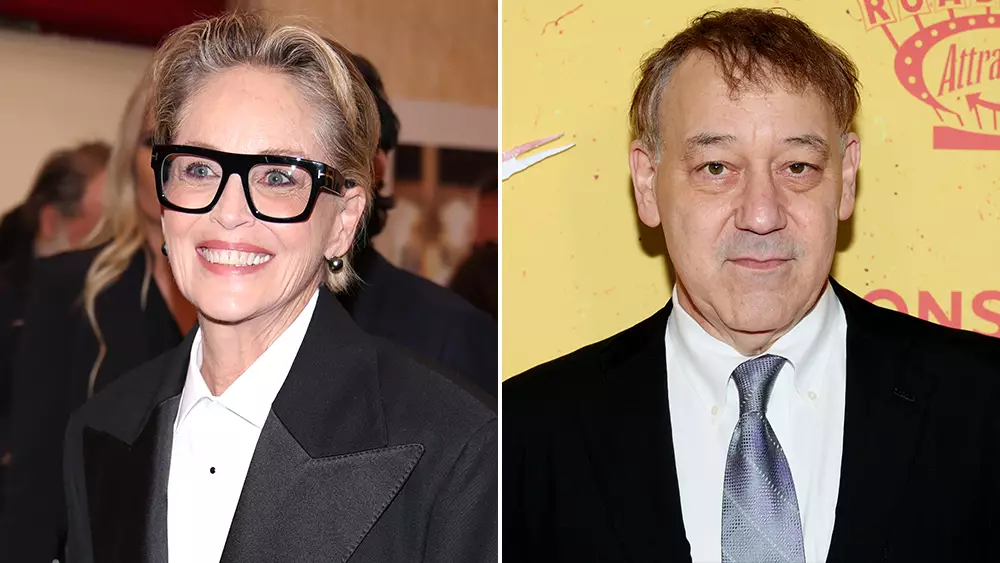Sharon Stone’s recent appearance at the Torino Film Festival was not merely a celebration of her illustrious career, but rather an exploration of the intricate dynamics of Hollywood, particularly through the lens of her 1995 film, *The Quick and the Dead*. While accepting a lifetime achievement award and introducing the film’s screening, Stone courageously voiced her thoughts on collaboration and loyalty in the film industry, shedding light on her experiences with director Sam Raimi and comparing them with her work alongside the legendary Martin Scorsese.
Contrasting Experiences with Renowned Directors
Throughout her conversation, Stone depicted a stark contrast between her experiences with Raimi and Scorsese, touching upon themes of loyalty and personal relationships. She hailed Scorsese’s robust Italian heritage as a foundation for his familial approach and enduring relationships within the industry, while suggesting that Raimi, primarily recognized for his cult hits like *The Evil Dead*, lacked this sense of loyalty. Stone reminisced about her role in elevating Raimi from B movies to A-list status, simultaneously highlighting her casting choices that laid the groundwork for the careers of actors like Russell Crowe and Leonardo DiCaprio. Yet, despite this collaboration’s initial promise, Stone criticized Raimi for what she perceived as a lack of gratitude and acknowledgment following their work together.
This dichotomy presents an intriguing commentary on the often capricious nature of Hollywood relationships. While successful collaborations can yield ground-breaking work, they are not always symbiotic in nature. Stone’s reflections suggest a broader notion that, particularly for women in the industry, partnerships can be fraught with danger if not handled with a sense of mutual respect and recognition.
Despite its lukewarm reception during its initial release, *The Quick and the Dead*, directed by Raimi, has burgeoned into a cult classic celebrated for its unique take on the Western genre. The film stars Stone as a formidable gunslinger who seeks vengeance against the oppressive mayor of the town of Redemption, portrayed by Gene Hackman. This narrative not only showcases Stone’s strength as a lead actress but also pivots around themes of empowerment and retribution, resonating deeply with audiences who appreciate the intricacies of character development and moral complexity often overlooked in traditional Westerns.
Stone’s assertion that *The Quick and the Dead* was a labor of love drew attention to her passion for storytelling and the production side of filmmaking. Yet the film’s trajectory also raises questions about the fickleness of critical reception in the entertainment sector; works often deemed failures during their release can remarkably evolve into revered pieces in cinema history, reshaping cultural narratives over time.
One of the most striking revelations during her Q&A was Stone’s candid admission regarding the entrenched sexism in Hollywood. Her aspirations to transition from producing to directing remained thwarted by systemic barriers she encountered in the ’90s and early 2000s. Despite presenting her ideas with enthusiasm and receiving accolades for her pitches, the resistant mentality within the industry, particularly towards female directors, stifled her ambitions.
This perspective highlights a critical issue within Hollywood that extends beyond individual experiences and reaches the very fabric of the industry’s culture. Stone’s reflections not only underscore the obstacles faced by women attempting to break through the glass ceiling but also offer a call to action for an industry that still struggles with gender parity. As she gracefully transitioned into casting roles, which were well-suited to her skills, the underlying frustration of untapped potential that women like her experience persists as a crucial conversation within contemporary discussions on equity in filmmaking.
Sharon Stone’s insights at the Torino Film Festival provide a thought-provoking examination of her journey through Hollywood’s often tumultuous landscape. They serve as a reminder of the nuanced dynamics of collaboration, loyalty, and recognition that shape professional relationships in the film industry. As Stone continues to champion female empowerment in cinema, her story inspires both emerging talents and industry veterans alike to advocate for an inclusive environment that honors everyone’s contributions, regardless of gender. The reflections of this iconic actress resonate even today, warranting a critical examination of the past while offering hope for a more equitable future in filmmaking.

Leave a Reply